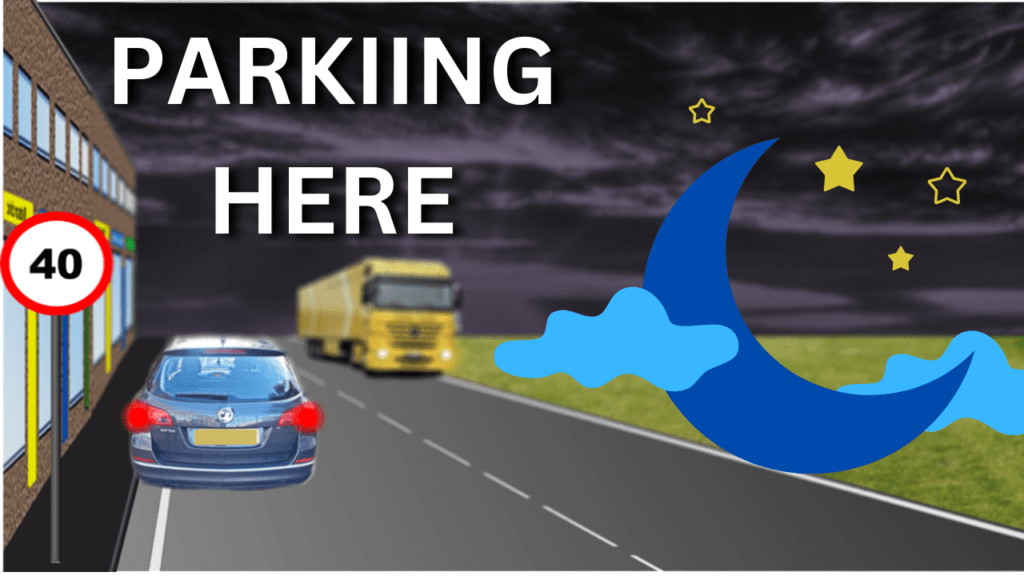Your cart is currently empty!
Can I park the wrong way at night?

Parking the wrong way at night is risking fines up to £1000 and chances are most people don’t even know that what they are doing is breaking the rules of the highway code. If you are not sure what I am talking about then don’t worry it will all become clear very soon.
There are specific rules in the highway code about parking in the wrong direction at night. These rules particularly effect heavy goods vehicles and regularly vehicles that can hold 8 people or more. The reason for this is that the reflectors on these vehicles will be much higher so passing cars will not reflect these off there headlights and can therefore easily be missed. This can and has been known to lead to collisions.
Is it illegal to park facing oncoming traffic UK?
Drivers are required to park in the same direction as the flow of traffic if a marked parking space is not being used at night.
There is however a problem with this rule in that it is not well known by UK motorists.
In accordance with the Highway Code, the purpose of this rule is to prevent drivers from parking against the traffic on unlit roads, since this could result in serious accidents, which could have serious consequences. You may be at risk of a fine of up to £1000 if you park on the opposition side of the road.

Has any one been fined for parking at night facing the wrong way?
Honestly from the research I have done I was unable to find any evidence that people have been fined for parking facing the wrong way with no extra cause such as causing a collision or anything else that lead from this. That is not to say that it has never happened only that it is not clearly documented.

Is there a difference between parking and stopping in the UK?
Parking
Parking is defined as the time when the vehicle is stopped, with or without the driver, for at least three minutes. If, however, you stop for more than three minutes in order to drop off or pick up passengers or to load or unload goods, or if you stop for more than three minutes to unload or load goods, you are no longer considered to be parking as defined by the Road Traffic Act.
Stopping
Stopping consists of any movement of the vehicle, with or without the driver, lasting for up to three minutes. According to the Road Traffic Act, if you have to stop in congested traffic or considered stopping then this does not constitute stopping within the meaning of the Act.
What are the parking rules in residential areas?
In the past, parking rules and fines have have never been very strict. It is imperative to keep in mind that this is not an excuse to park illegally. On UK roads and in car parks, there are certain rules governing when and where you can park.
It is helpful to understand the yellow/red lines and other road markings on the road
It is not advisable to park near intersections, corners, or hills
There is a law in the UK that prohibits parking on pavements.
Can i park at night on a 30 mph road facing the wrong way?
On a road with a speed limit of 30 mph, cars or goods vehicles that do not exceed 1525 kg weight are permitted to park at night without having to leave their lights or parking lights on. It is, however, important to keep in mind that you must not park against the flow of traffic except in a parking bay. In addition to that, vehicles must also be parked a minimum of 10 meters (32 feet) away from any junction and as close as possible to the curb.
What should you do at night when you park on a road that has a 40 mph speed limit?
Parking at night on a road or lay-by that has a speed limit of more than 30 mph is required to display parking lights and to park in a manner that does not impede traffic flow.
It is not permitted for other vehicles and trailers, as well as all vehicles with projecting loads, to be left unattended on a road at night without lights.
On the right side of the road during the night, it is not permitted to park on the right-hand side of the road against the traffic flow.


Leave a Reply